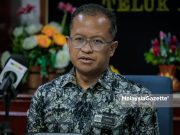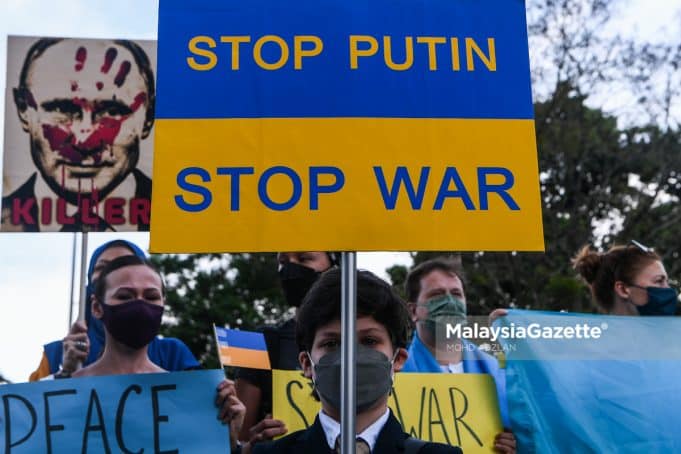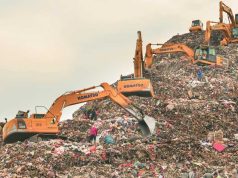By: Professor Datuk Dr Ahmad Ibrahim
FEW would deny that the world is in poor shape. All those pronouncements about ending poverty and stopping world hunger remain pipe dreams. Instead, we see more conflicts, driven mostly by greed and lust. Greed for oil and lust for power. All those talks about fighting for human rights are nothing but broken promises.
Humanity is trampled mercilessly in the power grab. Hypocrite is the right word. Even the rampant killing of other fellow beings is open for all to see on social media. The root cause of such massacre is the hate feeling that has spread like cancer among our proclaimed civilised society.
Much hatred around the world are based on differences in skin colour, religious belief, and ideological embrace. Racism is being exploited for political gains. In many countries, the rise of the far right is worrying. Groups which champion anti-immigration are winning elections. Is the world reaching a crisis point?
The assertion that the world has reached a crisis point can be explored from multiple perspectives. These include environmental, social, economic, and political, each highlighting interconnected challenges that demand urgent attention. The environmental crisis, though played down by some leaders, is real.
The facts presented by those with credible credentials are indisputable. The planet is grappling with the devastating effects of climate change, biodiversity loss, and resource depletion. Rising global temperatures, melting ice caps, and extreme weather events are creating severe impacts on ecosystems, economies, and communities.
Here at home we feel the impact as economically devastating floods. Human activities have led to mass extinction rates, disrupting ecological balance and threatening food security. Whilst our oceans are drowning in plastic, and air and water pollution are causing health crises worldwide. Is the world at all concerned?
Despite advances in technology and globalization, stark inequalities persist. Millions of people lack access to basic needs such as food, water, and healthcare, exacerbating global disparities. Social unrest is common. Protests and movements around the globe reflect growing dissatisfaction with systemic inequities.
Conflicts, climate change, and economic instability force millions to flee their homes, creating humanitarian emergencies. There are economic challenges. The global economy faces unprecedented pressures. The richest 1% hold more wealth than the bottom half of humanity, fueling resentment and instability.
Nations are struggling under massive debt burdens, limiting their ability to invest in sustainable development. All the pledges made to finance climate actions never materialsed. Automation and AI disrupt traditional job markets, leading to economic uncertainty for workers.
Political instability has become inevitable. Geopolitical tensions and governance failures hinder collective action. Ongoing conflicts in various regions destabilize societies and economies. The Russia-Ukraine war and the seemingly ending massacre in Gaza are clear testaments. Institutions like the UN, which are underfunded, struggle to address global challenges effectively, hampered by power dynamics and lack of cooperation.
There is a visible rise of authoritarianism. Trade protectionism is back. Democratic backsliding and authoritarian regimes threaten human rights and global stability. Then there is the health crises. The Covid-19 pandemic underscored the fragility of global health systems.
Global health infrastructure is unprepared for the increasing frequency of zoonotic diseases. Rising rates of anxiety, depression, and other mental health issues add another
layer to societal challenges.
While technology drives progress, it also creates risks. Cybersecurity threats carry much risks. The digital era brings vulnerabilities to hacking, misinformation, and data breaches. AI raises some ethical concerns. The unregulated development of AI raises questions about privacy, bias, and existential risks.
Despite commitments to sustainability, progress remains slow. Many countries are off-track to achieve the United Nations’ Sustainable Development Goals (SDGs) by 2030. We are doing better than most.
There is no denying that unsustainable production and consumption patterns strain the planet’s resources. Many are racing to embrace the circular economy which stipulates better and more efficient resource management. The convergence of these crises suggests that humanity is at a pivotal moment.
Many are racing to embrace the circular economy which stipulates better and more efficient resource management. The convergence of these crises suggests that
humanity is at a pivotal moment.
While challenges are daunting, they also present an opportunity to rethink and redesign systems for a more sustainable, equitable, and resilient future. Multilateral cooperation, innovative solutions, and a commitment to global solidarity are essential to navigate this critical juncture.
Do we have the right leadership?

The author is an Associate Fellow, Ungku Aziz Centre for Development Studies (UAC), Universiti Malaya.

















